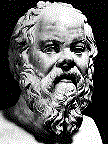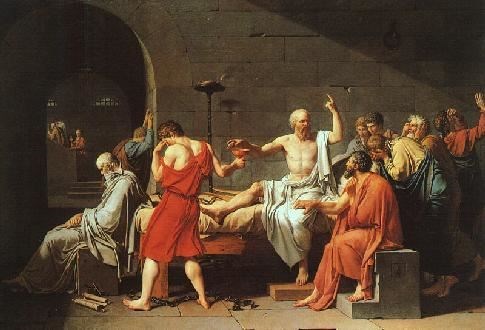Socrates is a valuable contributor to modern philosophy. The Socratic method, for example, involves at least two people where one makes a statement and the second, in opposing view, tries to point out a contradiction in the statement by way of others agreed upon by the two. This is very much akin to modern debate.
 |
Socrates never actually wrote of his own life so it's unclear as to how or if he made a living. Timon of Phlius and others said he took up stonemasonry from his father, Xenophon said he had no job, while still Aristophanes said he taught and ran a sophist school, though denied by others and stated as being contradictory to his beliefs. He may have been in the military, as several of Plato's dialogues point to it.
Socrates' beliefs are most certainly food for thought. He believed that no one is truly malicious, only ignorant, ie. evildoers did bad things because they didn't know better. He never considered himself a teacher and compared himself to a midwife in that they help birth "things" and can determine the good "things" from the bad. Socrates held community in the highest regard, strongly apparent when after the trial that condemned him to death he did not skip town as many expected him to. Socrates objected to any type of government not ruled by Philosophers and conformed to his ideals. On the more strange side, he believed he was a divine emissary and that everyone's amount of virtue was determined by the gods.
Fellow Athenians were in constant disagreement with Socrates' ideas and philosophy. Subsequently, he was put on trial accused of corrupting the youth and of heresy. As previously stated, he did not leave and his punishment was carried out in 399 BCE.
 |
Page created on 3/28/2008 12:00:00 AM
Last edited 3/28/2008 12:00:00 AM
